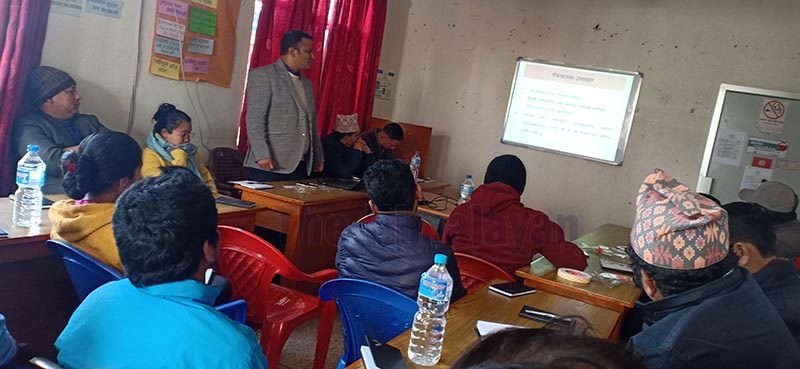Elephantiasis on the rise in Lamjung; elimination target hard to meet by 2020
LAMJUNG: In contrary to the government’s aim of abolishing Lymphatic Filariasis, commonly known as elephantiasis, within 2020, patients ailing from the condition are on the rise in Lamjung district.
The ailment that has been eliminated in the neighbouring districts including Gorkha, Tanahun, and Kaski is still found in a large number of people in Lamjung after 11 years of distribution of ant-filarial drugs in the district.
According to statistics of fiscal year 2018-2019 provided by District Public Health Office (DPHO), Lamjung, 138 patients were found inflicted with elephantiasis with 39 suffering from swollen legs, 90 from hydrocele, and nine from other symptoms of the filariasis, informed Lamjung DPHO chief Amar Dawadi.
Rainas, Dhamilikuwa and Bhalaykharka areas of Rainas Municipality has the largest number of elephantiasis patients, claimed the DPHO. Among the 115 patients in the area, 30 have swollen feet, 76 hydroceles and nine having swollen reproductive organs, added Chief Dawadi.
There are eight patients in Besisahar Municipality, nine in Sundar Bazaar Municipality, two in Madhya Nepal Municipality, two in Dordi Municipality, and one each in Kavholasothar and Marshyangdi Rural Municipalities, added Lamjung DPHO.
The Office organised a press meet in Besisahar on Sunday and informed that Lamjung is one of the 13 districts included in the mass drug administration programme under the National Programme for Prevention of Elephantiasis to be conducted on February 8.
During the programme, Chief Dawadi expressed concern over the existence of large number of filariasis patients in the district even though neighbouring district have abolished the condition. He said, even educated people refrain from taking medication for filariasis, making it further difficult to eliminate the disease from the district.
In the same programme, Chief District Officer Laxman Khadka said it is a matter of concern that a large number people are still suffering from elephantiasis in the district and called for the locals to be involved in the programme with enthusiasm.
(Translated by Sandeep Sen; Edited by Priyanka Adhikari)






